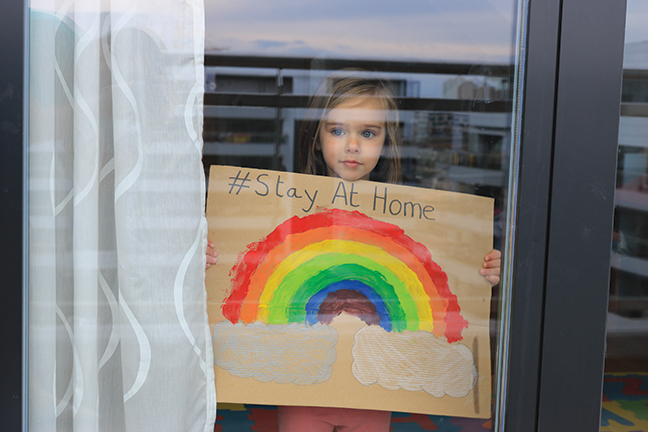BY E. COURTNEY ALBERTS, MA, LPC
Parents are spending more time than ever at home with their children. Increased time with their children, lack of distractions, and homeschooling have made parents concerned about their children’s mental health. Pre-pandemic parents may have been aware that their child struggled, but busy schedules made it difficult to seek treatment. Other parents also have realized their child’s issue is more severe than they previously thought.
It is hard for parents to know with all of the chaos in our world if the behavior that their child is showing is an appropriate reaction to the changes that have occurred during this pandemic. Parents also wonder if the behavior their child is showing is developmentally appropriate. The CDC describes mental disorders among children as serious changes in the way children typically learn, behave, or handle their emotions, causing distress and problems getting through the day.
This can be difficult for parents to recognize because children manifest anxiety and other mental health disorders differently than adults. They will often be excessively clingy or whiny, aggressive, or have regression in their developmental milestones such as sleep or toilet training. It can look much more like “acting out” behavior than what a parent may perceive as anxiety-type behavior. In addition, the change in structure can be a challenge for children who are already predisposed to attention or hyperactivity disorders, or anxiety or depressive disorders.
Signs that your child’s behavior is more than a temporary adjustment:
• Your child’s behavior is consistently interfering in their school performance, family functioning, or social interactions
• The behavior is lasting for more than 2 weeks
• If your child is showing any unsafe behavior either towards themselves or others.
Pre-pandemic, It is believed that as many as one in six U.S. children between the ages of 6 and 17 has a treatable mental health disorder such as depression, anxiety problems or attention deficit/hyperactivity disorder (ADHD). The pandemic is expected to increase these numbers. Adults are also suffering because of financial, medical, or just general underlying stress related to this virus. Children are often aware of this stress, whether consciously and unconsciously and may have behavior that is abnormal for them because of it.
Reaching out for support doesn’t mean that your child will be diagnosed with a mental health disorder. Sometimes children and teens struggle with adjustment or family dynamics and need some extra support. Many children and teens are struggling to adjust to the changes COVID-19 has caused. Support might be helpful in your child adapting to these changes in the healthiest way possible.
Mental health issues generally do not hold the stigma in most settings that it once did. People who know your child likely already noticed that they have trouble with self-control, seem blue, or are socially awkward. Diagnosis doesn’t create symptoms but rather names what your child has felt, and many have already observed. For many children having their symptoms named can be a relief and help with their self-esteem.
Parents should also need to be aware that mental health issues are treatable. Combinations of different therapy, medications, support groups, family work, and lifestyle changes can help children learn to manage their symptoms. Diagnosing and treating mental health disorders in children early can prevent and mitigate more serious issues such as behavioral problems, academic struggles, self-esteem, social issues, family conflict, and drug and alcohol abuse.
Because of COVID-19, most therapists and pediatricians are of seeing patients via telehealth. This option allows children and teens to get support without even leaving the house. Using this time without school or extracurricular activities to address concerns can help your child’s functioning once activities resume.
Another barrier to many parents reaching out for help for their children is financial concerns. Often parents aren’t aware that their insurance plans may cover mental health treatment. Many providers accept insurance, including Medicaid. There are also low fee and sliding scale treatment options available.
The first line of defense when treating mental health disorders is therapy. There are several types of psychotherapy that involve different approaches, techniques, and interventions. At times, a combination of different psychotherapy approaches may be helpful. Options for therapy for children and teens isn’t just talk therapy. Options like animal-assisted therapy, play therapy, and art therapy are also options. In therapy, children and teens learn to manage symptoms, gain insight, and improve their overall functioning. Therapy can be both short term and long term depending on the severity of symptoms. Medication can sometimes be helpful as an adjunct to therapy for some children.
COVID-19 has turned our lives upside down, but spending more time with our children may have made it difficult to ignore where our children need support. If you are concerned about your child’s or teen’s mental health, you can start by contacting your pediatrician. The pediatrician should be able to assess your child for initial mental health issues and make appropriate referrals. Another option is to find a mental health provider on your own. www.psychologytoday.com has a directory where you can search for therapists in your area, that accept your insurance and specialize in what you are needing.

